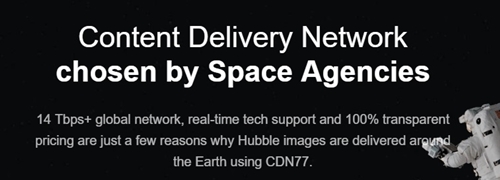The Best Cloudflare Alternatives [June 2019]
![The Best Cloudflare Alternatives [June 2019]](https://www.techjunkie.com/wp-content/uploads/2019/06/cloudflare-alternative.jpg)
Cloudflare is one of the biggest content delivery networks (CNDs) in the world. It offers various cloud-based features for website owners, from DNS service distribution and reverse proxies to website security.
With network traffic rapidly increasing, the need for an excellent CDN service is on the rise too. Using Cloudflare can prevent website crashes, ensure the smooth transfer of data, and it can keep your website safe.
In recent years, we’ve seen the development of many new cloud-based CDN providers, offering services similar to Cloudflare’s. But which of these CNDs is worth it? This article will list the main features of some of the best Cloudflare alternatives, so you can decide on your own which one to choose.
1. Akamai
Akamai is one of the largest CDNs and it provides services for between 15% and 30% of total web traffic. Thanks to this, it can handle volumetric attacks better than some of its counterparts.
This service improves content delivery speed a great deal and it’s good at preventing any DDoS attacks. This is mainly due to the amazing ‘Prolexic’s PLXEdge’ technology, which allows 2.3Tbps of bandwidth meant only for DDoS absorption.
Akamai’s ‘Kona Site Defender’ has a set of customizable rules and it updates daily. This means that you can see how well your site is being defended, and you can always tweak the defender to your needs.
In addition to this, the service provides many other useful features. There’s a web application firewall that secures against app layer attacks. You can use tools to track (as well as control) the request rate behavior of your traffic segments. In the end, if there’s a security breach that spikes your bandwidth, the service will not charge you additional fees.
The biggest downside of Akamai is its price. It comes at more than three times the price of other CDN services. If you are a small business looking mainly for DDoS protection, you may find the same service for a more affordable price elsewhere.

2. Amazon CloudFront
Amazon CloudFront is a part of the Amazon Web Service (AWS) platform, which aims to deliver all types of content at the highest possible speed. It can securely distribute static, dynamic, or streaming data to any part of the world.
One of the best features of CloudFront is its ability to automatically allocate hardware resources when needed. So, it can manage high traffic without the need for manual adjustments.
There’s also a user-friendly interface on the management console, which allows users to add custom Secure Socket Layers (SSL) and wildcard cName support.
When it comes to security, CloudFront is one of the most reliable cloud services online. This is mainly because it is integrated with other Amazon services. It works with AWS Shield for DDoS mitigation, Amazon EC2, Amazon S3, etc.
On the other hand, as you add more features and your website expands, CloudFront’s price goes up rapidly. Overall, it is one of the best CDN services around, but it’s also a serious investment.

3. Imperva Incapsula
Imperva Incapsula is a cloud-based platform that provides security services mostly for blogs and websites. It has a global network that provides DDoS protection, load balances, application delivery, and failover services.
This service is one of the cheapest CDNs around. For example, its full-feature package comes at a price three to four times cheaper than Akamai. You also get non-stop chat support and a dashboard that shows traffic data in real-time.
The bot-recognition engine is one of the best features this service has to offer, as it can prevent false positives on layer 7 attacks. This will keep your traffic safe even if you’re on holiday, as well as during non-working days or hours.
It has a huge network capacity, with one Incapsula hardware handling 170Gps and processes of up to 100 million packets every second.
Incapsula has its own ‘IncapRules’ scripting language, giving users a great deal of control over their security. But this feature is also one of the biggest downsides of using Incapsula, considering that the language has a steep learning curve.

4. CDN77
CDN 77 is one of the fastest-growing CDN services. It improved its network capacity from 300Gbps to 3Tpbs in just 12 months. It has 34 data centers and worldwide network coverage, including Europe and North America.
The main selling point of CDN77 is its user-friendly graphic interface, which is exceptionally easy to use. It has tabs such as dashboard, reports, support, and CDN, which you can access easily on the top of the page. You can also set it up in a matter of minutes – create storage, navigate to your files, and start the service.
When it comes to price, CDN77 offers tempting monthly plans. You can only pay for the data usage, and if you use a lot of traffic, the price per Gb will decrease. This is the ‘Pay As You Go’ method. On the other hand, you could choose the ‘High Volume’ monthly plan with up to 2PB, which is reasonable if you have huge traffic. There’s also a ‘Worldwide Monthly Plan’ with a fixed price per Tb.
The con of CDN77 is its lack of customizability since it doesn’t have any complex modification options. Users who like out-of-the-box modifications will be left disappointed.

Honorable Mentions
Besides the four mentioned, there are some more great CDN services that didn’t make the top cut but are still worth looking into. Here they are:
- Microsoft Azure – Being a Microsoft product, it offers Windows support in addition to standard Linux
- Key CDN – Very cheap, simple, and light CDN service with real-time logs and fast, secure connection
- StackPath – One of the more recent providers, still lacking some features but offers a great performance
Choose a Cloudflare Alternative According to Your Needs
When you consider the combination of features and price, Imperva Incapsula is the clear winner. However, if you have a small website with less traffic, the ‘Pay As You Go’ method offered by CDN77 could be the better choice.
Every CND on this list has some distinctive, interesting features, and there are many more options out there. Which one do you think is the best? Do you know of any other great Cloudflare alternatives? Let us know in the comments below.
















